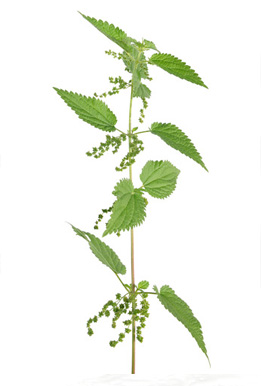The Short Answer:
Table of Contents
When dealing with allergies, we have the option to take antihistamines or allergy shots. Neither of which are terribly appealing. This article will cover natural antihistamines which can be useful against a number of allergies, including maladies like hives and a range of other skin disorders. We will also include foods that serve as natural antihistamines. Many of which are valid for both humans and pets.
What Are Allergies
Millions of people suffer from allergies. Whether it’s a reaction to food, medicine, or plants such as pollen and ragweed. The implications of these allergies range from sneezing and watery eyes. There can also be more severe reactions like shortness of breath and hives.
When talking allergies, we typically mean an immune system response to a foreign substance. This substance is often dust or pollen. One of the roles of our immune system is to create antibodies. Antibodies are proteins designed to attack antigens in the bloodstream.
While this is often a good thing as it helps us fight off disease, it can often be troublesome. The reason being that sometimes our bodies believe that certain substances are harmful. When, in fact, the opposite is true. For example, dust can’t harm us a great deal. But our immune system can interpret it as a menacing organism. As a result, it will and elicit an immune response to remove it from our bodies.
What Are Antihistamines
Histamine is a substance that helps with the process of purging the body of foreign invaders. It works by helping facilitate an inflammatory reaction as part of the immune response. An antihistamine is something that inhibits the histamine from taking action. It works by suppressing any symptoms of an allergic reaction.
Typical allergic reactions consist of sneezing, runny nose, itching and more. The role of antihistamine is to inhibit these processes. This despite the body perceiving allergens like dust and ragweed as foreign invaders.
An allergist or local pharmacy they will recommend you an antihistamine like Zyrtec. These are straightforward drugs and work to inhibit histamines from going to work.
Drugs are effective, but people should be wary of taking antihistamines for several reasons:
- They can be costly over time,
- They often bring about feelings of lethargy, sleepiness and can impair thinking ability,
- There is the potential that they may interfere with other medication and cause undesirable side effects.
It is always a good idea to opt for natural solutions (provided they are just as effective). If there are definitive natural solutions, a person should have no objections.
Natural Antihistamines for Hives and Skin Conditions

One of the most common allergic reactions people experience is inflammation or itchiness. Hives are, “an outbreak of swollen, pale red bumps or plaques (wheals) that appear on the skin. They are a result of the body’s reaction to certain allergens or reasons we don’t yet understand.
Hives may be responsible for a constant itch or burning/stinging sensation. They can appear anywhere on your body and cause discomfort.
While hives are distinct, it’s always a good idea to check with a medical professional just in case.
Often hives resolve themselves over time. If they don’t, it’s a good idea to try a natural antihistamine as they can assist with Hives.
Although hives is a result of internal allergic reactions, topical solutions work quite well. One of the most effective topical compounds with antihistamine properties is Aloe Vera.
The aloe plant has long been considered a powerful and efficient medical treatment . While it has a variety of uses, concerning its antihistamine properties. Aloe, “has anti-allergen effects, [which] inhibits the secretion of histamine and leukotriene.
Stinging Nettle
Another plant praised for its many health benefits is stinging nettle. According to a study by the University of Maryland Medical Center Stinging Nettle, “reduced sneezing and itching in people with hay fever.
That may be due to nettle’s ability to lessen the amount of histamine produced in response to an allergen.

Natural Antihistamine Foods and Nutrients
People look high and low to find alternative medical solutions. In most cases, they overlook the most abundant solution: Food. Yes, the foods we eat, or, at least, should eat, are filled with nutrients. Many of these nutrients have anti-inflammatory and antihistamine properties.
Before modern medicine, people had to rely on foods or plants that served as an antihistamine. These foods would contain vitamins with powerful antihistamine properties, namely vitamins A and C.
These two vitamins are well known for their immune boosting properties. It’s no surprise that they work so well as antihistamines.
Vitamin A
This vitamin is imperative for proper functioning but is often missing from most diets.
It is necessary to eat fruits and vegetables that are rich in vitamin A. This includes foods like carrots, mangos, spinach, and sweet potatoes. Cod Liver Oil is also considered a supplement to help meet the recommended requirement of vitamin A.

Vitamin C
Foods rich in vitamin C are quite common. They consist of citrus and certain vegetables such as Brussel sprouts, squash, and tomatoes.
Foods that are rich in vitamin C tend to lose their punch a little once processed. The same occurs if kept stored for extended periods.
Ginkgo Biloba
 Ginkgo Biloba is a Chinese herb that has been growing in popularity in recent years. It possesses many health benefits one of which is its treatment of seasonal allergies. Research of Ginkgo shows its effectiveness when used as an extract added to eye drops. It contributes to a reduction in eye redness. Ginkgo is also effective for those suffering seasonal allergic conjunctivitis.
Ginkgo Biloba is a Chinese herb that has been growing in popularity in recent years. It possesses many health benefits one of which is its treatment of seasonal allergies. Research of Ginkgo shows its effectiveness when used as an extract added to eye drops. It contributes to a reduction in eye redness. Ginkgo is also effective for those suffering seasonal allergic conjunctivitis.
Omega-3’s and Fish Oil
When taken with fish oil, there are significant health benefits to an Omega-3 supplement. The benefits are due in large part to its anti-inflammatory properties. Omega 3 works on a wide arrange of ailments such as muscle and joint pain and also applies to allergies. As the histamine response often causes inflammation in the body as an immune response, Fish Oil helps reduce that inflammation.
Flavonoids
They may not be all that popular, but flavonoids are powerful nutrients. They are powerful due to their immune boosting and antioxidant prowess. The key to their antihistamine properties relies on the substance Quercetin . Quercetin has been found in abundance in flavonoids.
Quercetin is a natural antihistamine. It works by stabilizing mast cells to prevent the release of histamines. It also stops the release of other inflammatory compounds.
A rule of thumb for finding flavonoid-rich foods are to choose bold, bright colors. Foods are such as blueberries, broccoli, and tomatoes are ideal.
Natural Antihistamines for Babies
One of the most important aspects of raising a child is paying close attention to their health. From the time they are babies, you may notice foods (or other substances) cause an allergic reaction.
Depending on the baby’s diet, be cautious introducing foods that they haven’t tried yet. If they progressing well in their developmental stages, aim to introduce foods rich in nutrients (i.e. Vitamins A and C, Flavonoids, etc.)

Natural Antihistamines for Animals
Dogs
It’s hard enough to suffer from allergies of your own. Animals can also suffer, particularly the family dog. Your dog can’t speak and tell you what’s ailing them, so you have to be thorough in observing for allergy.
One of the most common allergy symptoms in dogs is itching. Dogs often bite, scratch, and gnaw at the irritated area to try and ease any irritability. Itching and scratching can occur for a variety of reasons in dogs. If an allergen is responsible, then there are several approaches to take.
One of the best all-around allergy fighters is honey. Honey has many health benefits. One reason to use honey for dogs is if purchased from a local produce store it can help the dogs build up resistance to local pollen. Plus, honey tastes great!
Also, substances and nutrients like Quercetin, Vitamin C, Flavonoids, and Omega-3’s are all great options for dogs. Just make sure that they can tolerate them.

Horses
Because horses spend their lives outdoors, they are subjected to many potential allergens. These often include trees, grasses, fungi, and dust (from bedding and hay).
One of the best minerals to use for allergies in horses is Magnesium . It is useful for relaxing and dilating the muscle lining the horse’s airways. These muscles may often be quite constricted due to allergy.
In general, it is important to manage the immune system and diet of horses. It is important to make sure horses are getting the right vitamins and minerals in their diet.
Cats
Many people are allergic to cats. But did you know cats suffer allergies themselves? Cats are common domestic pets like dogs and can end up exposed to similar household allergens, yet they can respond to these allergies in different ways.
Cats are more reticent and solitary creatures, and will not be as clear when they are suffering. They don’t often scratch at spots, but rather they groom excessively. While grooming is standard practice, cats may go to the point where they are losing hair in certain spots on their body.
If we are to combat these allergies from a natural and holistic standpoint, it is important a proper diet and supplement regimen is in place.
Regarding diet, it is important to make sure that their food does not contain any potential allergens. Low-quality cat food may trigger allergic reactions. Their food should be of the highest quality. Cats can be picky eaters, but when possible feed them foods containing vitamins A and C.
Omega-3’s are also ideal for cats. But because cats love fish and fish products it may be conducive to feeding them natural fish.
The best step to dealing with allergies is preventing them in the first place. If you are suffering allergies and prefer a natural approach, the options above are a great place to start.
